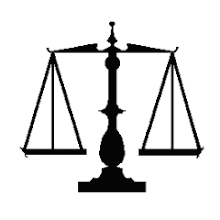Bachelor/Master Scheme
GeneralAt German universities, in accordance with the so-called Bologna process, the traditional Diploma, Magister, and Teacher Training degree courses have been largely replaced by the internationally recognised two-cycle qualification programmes. The first and second cycles comprise
Undergraduate Studies leading to a Bachelor's Degree (6 to 8 semesters) Graduate Studies leading to a Master's Degree (2 to 4 semesters) If you have obtained a university entrance qualification ("Abitur"), you are eligible to enrol in a B.A. programme at RWTH Aachen University. After having completed your B.A. – your first university degree –, you can take up graduate studies at RWTH in order to obtain your Master's degree. In order to do so, you again have to apply for admission. You can enter a graduate studies programme right after having been conferred the B.A, but you can also come back to university after a period of time on the job.
Degrees AwardedB.A. - Bachelor of Arts B.Sc. - Bachelor of Science M.A. - Master of Arts M.Sc. - Master of Science B.Sc.The type of degree awarded in the first cycle depends on your chosen subjects. If you study natural sciences, engineering, or economics, you will aim for a Bachelor of Science (B.Sc.), while a Bachelor of Arts (B.A.) degree is awarded for having successfully completed a study programme in the humanities, for example. In a B.Sc. programme, you typically study a single subject, while in a Bachelor programme you typically have to select to subjects of your choice (which are weighted equally – there is no differentiation on major and minor). For more information on possible combinations of subjects in B.A. courses, please refer to our Bachelor of Arts pages.
Modular StructureBachelor programmes consist of different modules which are credit rated to reflect the workload that they involve (see below). A module comprises lectures, seminars, and labs, all of which are thematically or methodologically linked. Some modules will be taught over two semesters, other modules may be condensed into one semester.As a basic rule, the Bachelor's and Master's degree programmes are modularised. Modules are comprised of several classes, seminars, exercises and labs, for some of which oral and written exams have to be taken. Usually one module covers one or two semesters of the academic year.
ECTSStudents who successfully complete a module score credit points based on the European Credit Transfer System (ECTS), which measures the total student workload required for the successful completion of a study programme. The envisaged average workload is 40 hours per week; credit points measure both time spent at university as well as for study at home. Credit points accumulated at a European university can be easily transferred to other European universities. Student performance however is still assessed according to the German grading scale ("Very good" to "Sufficient").
ExaminationsECTS points by themselves do not indicate the quality of student performance, which is assessed through written and oral exams, assignments, etc. There are no longer any intermediate or final exams (Vordiplom, Zwischenprüfung / Abschlussprüfung), as exams are taken regularly throughout your studies. As the final part of your degree programme, you have to write your Bachelor's thesis.
Employability / Professional PerspectivesInternational business and industry expect graduates to have acquired both specialist knowledge as well as transversal skills (such as communication and analytical capabilities). Therefore, every bachelor programme includes special skills electives which are to equip you with transferable and language skills as well as to provide the opportunity to take part in lectures and seminars from other fields of study.
more details : http://study-germany.info
Monday, December 7, 2009
Subscribe to:
Post Comments (Atom)

No comments:
Post a Comment